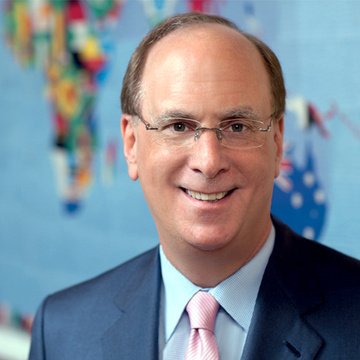Laurence D. Fink is founder, chairman, and CEO of BlackRock, Inc. He and seven partners founded BlackRock in 1988, and, under his leadership, the firm has grown into a global leader in investment and technology solutions. BlackRock helps investors build better financial futures, and the firm is trusted to manage more money than any other investment company in the world. Fortune has named Fink one of the World’s Greatest Leaders, and Barron’s has named him one of the World’s Best CEOs for fourteen consecutive years.
Prior to founding BlackRock, Fink was a member of the management committee and a managing director at the First Boston Corporation.
He serves as a member of the boards of trustees of New York University (NYU) and the World Economic Forum and is co-chair of the NYU Langone Medical Center board of trustees. In addition, he serves on the boards of the Museum of Modern Art, the Council on Foreign Relations, and the International Rescue Committee. He also serves on the advisory board of the Tsinghua University School of Economics and Management in Beijing and on the executive committee of the Partnership for New York City.
Fink earned a BA in political science and an MBA with a concentration in real estate from the University of California at Los Angeles.
 Online Store
Online Store
